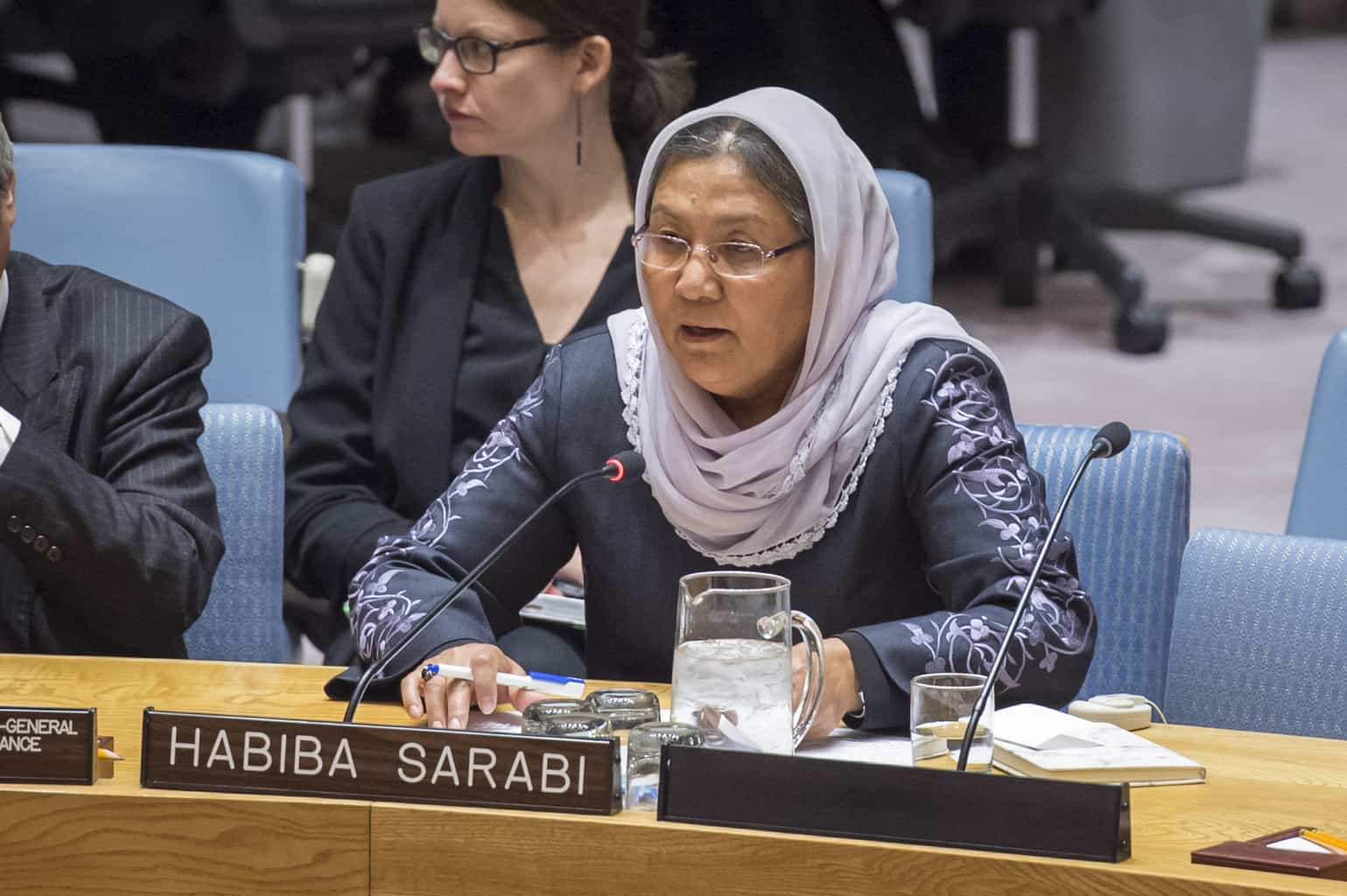The upcoming Istanbul meeting is expected to take place on April 16th, but officials are yet to confirm the date.
Human Rights Watch [HRW] has called on the United Nations [UN] to ensure the full participation of women in the upcoming meeting to discuss the Afghan peace process in Istanbul.
“Human rights advocates in Afghanistan have raised concerns that women and victims’ organisations will be sidelined in the talks,” the rights organisation said on Wednesday.
A proposed peace plan that includes possible elections is expected to be presented at the meeting, which is tentatively scheduled to take place on April 16th. The Istanbul conference is part of the US’ efforts in ending decades of conflict between the Afghan government and the Taliban.
However, women continue to be sidelined from the conversations despite facing ongoing attacks, the rights group said.
“It’s … ridiculous to expect a single woman, in a room full of not just men, but in many cases men with long track records of abusive attitudes and conduct toward women, to carry all women’s rights on her shoulders,” said Heather Barr, the interim co-director of the women’s rights division at Human Rights Watch.
Read also: ‘Progress’ made at Afghan meetings in Qatar: reports
The HRW report comes after a leaked US draft plan from February 28th called for a transitional “peace government” in Afghanistan “with special consideration for the meaningful inclusion of women…throughout government institutions.”
However, HRW believes that the vagueness in the proposal does not guarantee the full inclusion of women and the implementation of the UN Security Council Resolution 1325, adopted in 2000.
“The US should not stay silent if the Afghan government shuts women out of peace talks,” said Barr. “It’s critical for the Biden administration to be clear that Afghan women need to be full participants in all talks, and that women’s rights are not a bargaining chip.”
Women ‘sidelined’
While the list of attendees has yet to be confirmed, HRW stated that women have been sidelined throughout the intra-Afghan talks, bringing attention to previous meetings where women were not present to discuss the peace process.
Since the talks were first launched between Afghanistan’s warring factions in Doha, only four women participated from the government’s end, with none representing the Taliban delegation.
At the most recent Moscow meeting, the Afghan government delegation included just one woman: hematologist, peace activist and politician Dr. Habiba Sarabi.
“UN officials should make clear that women should not be relegated to side discussions but need a central role in determining Afghanistan’s future,”said Barr.
During the height of Taliban rule between 1996 and 2001, women were subject to strict laws. The militant group forced women to fully cover and launched fierce attacks on those who attempted to go to school or join the workforce.
Attacks on women
However, attacks against women remain a reality in Afghanistan and HRW believes they are designed to “drive women from public life”.
“Unidentified attackers have also gone after journalists, civil society activists, and professionals, killing many, driving some from the country, and leaving the rest to live in fear,” said Patricia Gossman, associate Asia director.
According to the Afghan Journalists Safety Committee, 14 women working for Kabul-based media outlets were either threatened or violently attacked last year, forcing a high number of Afghan women journalists out of their careers.
“In the past 10 years, I have always been threatened for working as a female journalist, but I knew this time that this was different,” one woman reporter told HRW.
Farahnaz Forotan, an Afghani journalist, was placed on the Taliban’s blacklist, saying that the militants regularly refused to be interviewed by women.
“The reason they wanted to kill me, was because as a woman I am not accepted according to their values,” she told HRW.
The upcoming Istanbul talks aim to fast-track the latest discussions in Qatar, which initially began in September last year.
Women’s rights were one of the key areas of discussion in the peace negotiations between the Afghan government and the Taliban in Doha, however, women were not adequately represented in the talks, rights groups say.
Follow Doha News on Twitter, Instagram, Facebook and Youtube







